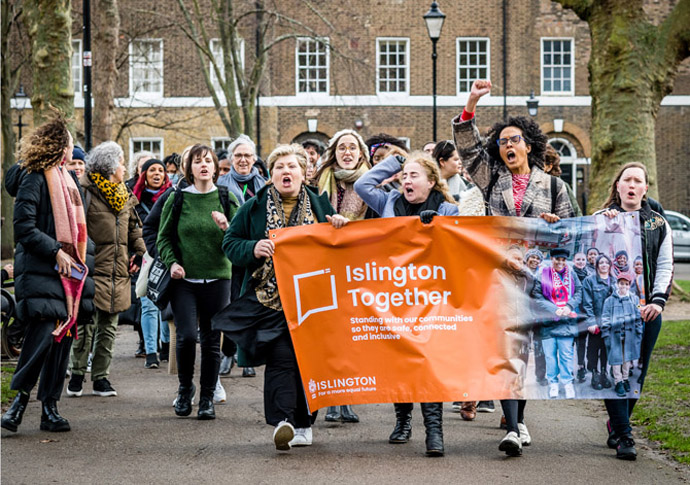The pioneers who pushed me to stand for parliament
Emily Thornberry recalls her journey into politics – and calls for more women in the House of Commons
Friday, 10th March 2023 — By Emily Thornberry

Emily Thornberry joining a march protesting over violence against women
WHEN we look at the challenges facing women in our society – equal pay, affordable childcare, public safety – getting more women into parliament remains as crucial a mission now as it did when women were first able to stand as MPs in 1918.
There has been important progress. Half of Labour MPs are now women, and while 18 years ago I was the 285th woman elected to the House of Commons, that total now stands at 561.
But that’s still not enough women to fill the House of Commons once. I’m still the only MP to have been called Emily, while since 1918 there have been 65 Edwards, 189 Williams, and 360 Johns.
I used to use this fact as a source of inspiration. I’d find young women who had never had anyone with their name elected before, tell them they could be the first, and see their eyes light up with ambition.
But I don’t want to tell women that they have to make history in order to make their voice heard any more.
Instead, I want to follow the example set by one of my predecessors as MP for Islington, Dame Leah Manning, elected in 1931 and – incidentally – still the only MP ever to be named Leah.
She had many great achievements, but what probably mattered to her the most was what she did to look after other female MPs, particularly that generation who came to Westminster after the 1945 election.
So, when asked to sum up her life at the age of 84, she didn’t talk about being the president of the NUT, evacuating thousands of children during the Spanish Civil War, or setting up free contraception clinics.
She just reflected on her time as one of the few women MPs in the early 1930s, and said she was proud to have been a brick in the foundation that helped the rest of the building to stand.
And Leah was right. Because whatever individual names we have on those bricks, and whatever individual achievements we have to those names, we should all feel honoured and humbled to be part of that wall.
Whether it’s sexual harassment or online abuse, recent events aren’t a good backdrop for persuading young women to run for office. But we have a responsibility to ask other women to stand, and to ask them more than once.
I was able to overcome my fear of standing thanks to the encouragement of others. And I was able to stand thanks to the pioneering women before me who boldly said, ‘You have to see it to be it’, and pushed for the introduction of all-women shortlists like the one I was elected from.
Those shortlists ended the culture of all-male shortlists that was still common in the party, and turbocharged the change we needed for a whole new generation of women to stand and have their voices heard.
I want to tell young women that they can join the rest of us who are already there and making a difference, to be part of a community where they will be welcomed and supported. I want them to feel part of a movement, not like lonely pioneers on their own personal mission.
From social care to childcare, there is so much we still need to do make Britain a place of equality for women. So now I will be telling young girls that they stand on the shoulders of giants like Dame Leah Manning, and that one day a future generation of female MPs could stand on their shoulders too.
• Emily Thornberry is the MP for Islington South and Finsbury